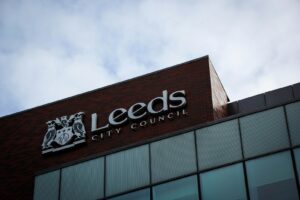Following inspections from the government social housing regulator four cities were scrutinised for their standards and management of social homes. Including Bristol.
The report from The Regulator of Social Housing (RSH), which was published at the beginning of the week, outlined that one of the main problems with Bristol’s social homes is the huge backlog of repairs that are affecting around half of the homes in the city. Even more worryingly, experts discovered that there are thousands of overdue fire safety ‘actions’, and the council could not show that it is meeting carbon monoxide safety requirements for almost all of its 26,700 homes.
In response to these shocking findings, the council has admitted tackling the backlog will take a number of years – council chiefs are yet to set an estimated date by which things will have begun to get sorted. What’s more, the local authority is appealing to the new Labour government for additional funding as meeting new homes targets could cost ‘tens of millions’ of pounds.
The judgement from RSH read: ‘Bristol City Council could not evidence that it is meeting carbon monoxide safety requirements for over 22,000 homes (out of 26,700 total homes). It also reported 1,900 open damp and mould cases, more than 16,000 overdue repairs and 3,000 overdue fire safety actions. In addition, the council does not have up-to-date data about the condition of tenants’ homes.’
However, Bristol City Council have claimed the number of overdue repairs is closer to 11,000 – the 16,000 figure included occasions when council housing tenants reported the same issue more than once.
Kate Dodsworth, chief of regulatory engagement at the RSH, said: ‘Landlords must provide safe and decent homes for tenants, have an effective complaints process, and put things right when there are problems.
‘The judgements we published today show that each of these landlords have issues which they need to address promptly. All landlords need to make sure they deliver the outcomes in our standards and inform us when there are material issues.
‘Our new approach to regulation, which started in April, gives us new tools to scrutinise landlords’ performance and, where there are issues, drive them to deliver long-term improvements for the benefit of tenants.’
The new strategy to drive improvements in social housing was introduced by the RSH at the start of the year following various council property tragedies, including the case of Awaab Ishak. Under the new rules, landlords have to ensure tenants are safe in their homes, listen to complaints and know more about the condition of every home under their management and the needs of the individuals inhabiting in them.
After the new report from RSH was published, leader of Bristol City Council, Cllr Tony Dyer, said: ‘We apologise to all council tenants and those who live in our council owned homes,” he said. All residents should expect us, as a landlord, to deliver a high standard of housing and comply with national requirements, and we share these expectations.
‘We recognise that this news will likely cause concern for some residents. We do not wish for anyone to worry but recognise that better communication and further information is needed to ensure all residents are clear on what this judgement means and how we intend to fix the issues we face.’
‘Both our own internal assessment and that of the regulator sets out clearly where the gaps in our arrangements exist and provide a blueprint for improvement. We accept the findings of the regulator’s review and have committed to fix the issues we face in the shortest possible time,’ Cllr Dyer said. ‘Whilst we accept the failings in our own services, we also acknowledge the national challenge councils face in catching up with changing regulation at a time when funding is scarce. Our position is not unique, and we join a number of other local authorities who have found their arrangements to be inadequate to meet the necessary national standards for social housing.’
‘As we look internally at improving our arrangements to meeting a high level of regulatory compliance, we also look outwards, towards government, with an open hand to work together to deliver decent homes for social tenants,’ he added.
Image: Larisa Mamonova
More on Bristol:
Plans to build new student flats in Bristol have been delayed
An influx of regeneration plans have been proposed to Bristol City Council

















Leave a Reply